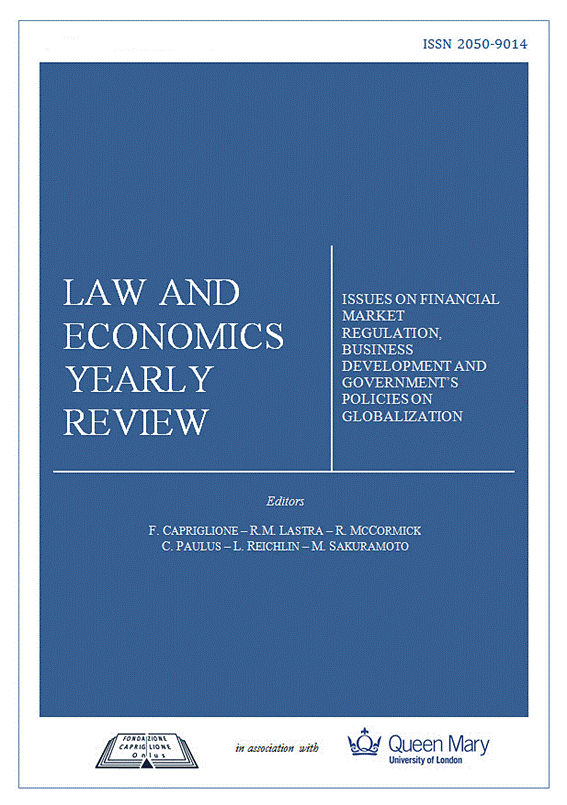Warwick Law School News
Warwick Law School News
The latest updates from our department
Dos and don’ts of Brexit: Dr Andreas Kokkinis examines the future of the UK financial services
We are proud to announce that an article, co-authored by Assistant Professor Dr Andreas Kokkinis alongside Dr Andrea Miglionico from the University of Reading, was published in the prominent Law and Economics Yearly Review this month.
Dos and don’ts of Brexit: The future of the UK financial services sector was recently published in the Law and Economics Yearly Review, an international peer-reviewed academic journal to promote a legal and economic debate under the auspices of Fondazione G. Capriglione and in association with the Queen Mary University of London.
 The article co-authored by Dr Andreas Kokkinis at Warwick Law School and Dr Andrea Miglionico from the University of Reading examines the various possible scenarios and challenges for the UK financial services industry during the post-Brexit era.
The article co-authored by Dr Andreas Kokkinis at Warwick Law School and Dr Andrea Miglionico from the University of Reading examines the various possible scenarios and challenges for the UK financial services industry during the post-Brexit era.
The article initially sets out the stark choice the UK faces between EEA membership and third country status in the context of financial services and discusses the complex notion of equivalence under current EU financial legislation.
Dr Kokkinis & Dr Miglionico propose that future market access to the EU will probably have to be based on the current legal concept of equivalence which is determined unilaterally by the EU Commission or Member State national authorities as the case may be.
For a financial firm that is established outside the EU, a determination of equivalence by the EU Commission means that the legal and regulatory framework of the third country is deemed to be equivalent to the EU framework for the purposes of some specific piece of EU legislation. This can lead to market access being granted to the financial firm in question, which can then offer certain services directly to clients in the EU without the need to establish a subsidiary in one of the Member States and to obtain authorisation by the relevant national regulatory authority.
“This will generate considerable legal risk and uncertainty for UK financial firms which are likely to respond by moving operations and jobs to the rest of the EU,” Dr Kokkinis states.
In the second part of the article, Dr Kokkinis and Dr Miglionico go on to identify two areas where there is a significant risk of divergence between UK and EU regulatory rules after Brexit:
- the regulation of Credit Rating Agencies
- the resolution of ailing banks
The post-Brexit impact may exacerbate issues with accountability and the governance of the rating industry as well as the banking recovery and resolution framework. “Such divergence poses several risks including a risk of deregulation and a risk of suboptimal cross-border cooperation,” Dr Kokkinis concludes.
To read the freely accessible article, visit Dos and don’ts of Brexit: The future of the UK financial services sector.
NOTES
Citation: Andreas Kokkinis and Andrea Miglionico ‘Dos and don’ts of Brexit: The future of the UK financial services sector’ (2018) 7 Law and Economics Yearly Review 48
Dr Andreas Kokkinis is part of the GLOBE centre at the University of Warwick – School of Law. The Centre for Law, Regulation and Governance of the Global Economy (GLOBE), created in 2014, is a research and public engagement centre that brings together staff and postgraduate students working in international economic law, business and commercial law, corporate governance and financial regulation.
The Law and Economics Yearly Review is an academic journal to promote a legal and economic debate. It is published twice annually (Part I and Part II), by the Fondazione Gerardo Capriglione Onlus (an organization aimed to promote and develop the research activity on financial regulation) in association with Queen Mary University of London. The journal faces questions about development issues and other several matters related to the international context, originated by globalization.
